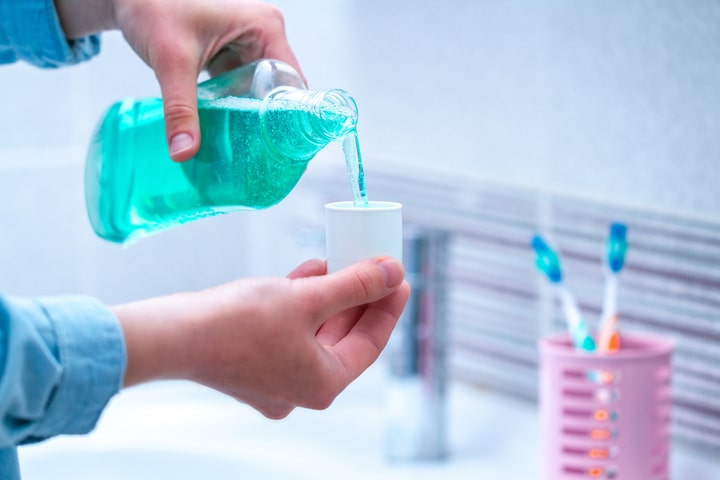
 World Oral Health Day 2021: Mouthwash combined with essential oils such as menthol, thymol, eucalyptol and oil of Wintergreen work very well. Find out more here.
World Oral Health Day 2021: Mouthwash combined with essential oils such as menthol, thymol, eucalyptol and oil of Wintergreen work very well. Find out more here.
World Oral Health Day 2021 is observed on March 20 every year. The day is meant to raise awareness about oral health and the many reasons why maintaining good oral hygiene is of crucial importance. In this article, we are going to talk about the benefits of essential oils for oral health. Essential oils have been associated with healing effects since ancient times. They are popularly used to improve sleep quality, reduce headaches, relieve stress and fight several other inflammatory conditions. Essential oils are often used when suffering from toothaches and gum problems.
While most of us think that brushing too hard or too fast causes bleeding of gums, it is not true in all cases. It is the leftover germs in the mouth that can lead to gum problems and bad breath. Hence, having a complete oral hygiene routine is an effective way to not only address these issues but also prevent them.
Comprehensive oral hygiene routine includes brushing, flossing and rinsing with mouthwash, two times a day to help one have a clean and healthy mouth. While brushing is important, focusing on other steps is also important. Adding the right mouthwash to one’s oral hygiene routine can be a simple yet effective way of getting rid of leftover germs that are left behind even after brushing.
Mouthwash combined with essential oils such as menthol, thymol, eucalyptol and oil of Wintergreen work very well. These oils are known to be effective in solving oral health concerns like reducing gum problems and bad breath. Combination of these essential oils in a mouthwash makes it easier to reach hidden plaque and germs left after brushing and ultimately the outcome is a clean and healthy mouth.
World Oral Health Day: Here are some essential oils to look out for while choosing a mouthwash
1. Eucalyptol
Eucalyptol oil is a known essential oil obtained from leaves of eucalyptus and has antibacterial properties. It penetrates plaque and kills germs in the mouth.
2. Thymol
This is identical to natural thyme and ajowan herb. Research has shown that this essential oil is very effective against bacteria and reduction of gum diseases.
3. Oil of wintergreen
Oil of Wintergreen is extracted from the leaves of wintergreen plant. This essential oil is a popular ingredient found in chewing gums due to its fresh-flavouring properties. It is highly effective in controlling bad breath.
. Menthol
This is the active ingredient in peppermint and is known for its fresh flavour. It is well-known for its germ-killing properties and halts the growth of bacteria in the mouth.
Long before modern-day toothpaste was created people were dependent on twigs and essential oils like clove, eucalyptus and peppermint because of their flavours and germ-fighting properties. These essential oils were known to keep the mouth healthy and fresh as well. Taking inspiration from this, modern-day mouthwashes have added these ingredients in the formula and provided an amalgamation of ancient and modern techniques to maintain proper oral hygiene.
Before using the mouthwash don’t forget to read the manufacturer’s instruction label. If there are any specific instructions, it is best to follow them. Sometimes, after using a mouthwash one would feel a bit of tingling or slightly burning sensation in the mouth, don’t worry, it’s the mouthwash at work helping to get the best results.
Hence, it is recommended to brush, floss and use an essential oil-based mouthwash twice a day to maintain one’s oral health.







